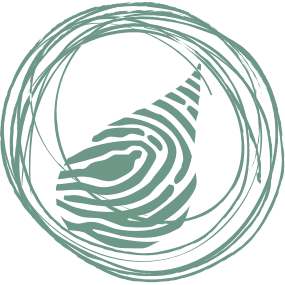Trent Tyler has a farm property in Wyalkatchem that abuts the Korrelocking Nature Reserve which is a 250ha reserve home to mature Salmon Gum and Gimlet woodlands and is a sanctuary for kangaroos and other forms of animal and bird life.
In 2015 WNRM approached Trent about fencing off this piece of pristine natural vegetation and asked for assistance in feral animal control for the reserve and Trent’s surrounding property. WNRM advised him that he would be able to access financial assistance to protect the reserve through the Mortlock Connections Onground Works project. The assistance comprised of 1.7km of stock proof fence and feral animal management in the form of 20 rabbit control bait stations and the loan of three fox control cage traps. WNRM also funded 24 pails of 200 baits for foxes and 12 x 10kg pails for rabbits as a starter stock of bait.
Protecting native bushland for native animal habitat is important to Trent because it keeps animals out of the paddocks and keeps a distinction between bushland and farmland without jeopardising habitat for native species. It is also important to create a barrier for feral animal control. The feral animal control is essential for the preservation of pristine bushland and native animals as well as protection for the crops. “We felt it was so important that we decided to do the fencing ourselves.”
Trent said that his family have been trying to eradicate pests for generations on their land, “we have been taught by our parents and grandparents how to control feral animals, and this was mostly done by going out hunting and shooting on a regular basis.”
As an example of how bad the feral animal situation was Trent states that “ten years ago we used to go out shooting and we would get 50 rabbits and four foxes and maybe three to four cats a night. Now when I go out shooting, I can’t see any. We have depleted feral animals by around 95% with the fox/cat cages within a few years.”
The feed stations were something new to Trent and it worked well. He said that “the feed stations are very resilient; they don’t get damaged or water damaged so I still use them.” Trent continues to use the cages and bait stations to keep the pest situation under control.
The feral animal control activities that Trent has undertaken on his land have been of benefit not only to himself but to neighbouring properties. There are a lot of boundaries where bush lines are common, and Trent’s control of vermin and rabbits has helped as neighbours have said their feral animal numbers are much reduced. Trent shares information regularly about the feed stations with his neighbours and tells them of the great success he has achieved.
One of the biggest impacts to come from the WNRM fencing and trapping project is that Trent used to lose about 10 acres of crop to rabbits, this loss is now reduced to zero acres. The kangaroos on the main farm property now stay in the natural bushland, which has stopped the damage they used to cause by rolling around in the crops.
Trent believes it is worth contacting WNRM if you have feral animal issues. He doesn’t believe he would have gone to the extent that he has with baiting stations and cages because he did not know they existed. He said that working with WNRM was a straightforward process, the application was simple, and the staff were polite, pleasant and informative. WNRM pay for the materials and you implement the activities. WNRM called us consistently for the first twelve months to see how we were going and to ask if the program was working or not, so the support is there if you have any questions.
This story is part of an independent survey undertaken to monitor the lasting effects that agricultural and biodiversity projects have with the community. If you’ve been involved in a project and want to share your story, or want to be involved in a natural resource management project, you can email info@wheatbeltnrm.org.au and we’ll be in touch.

